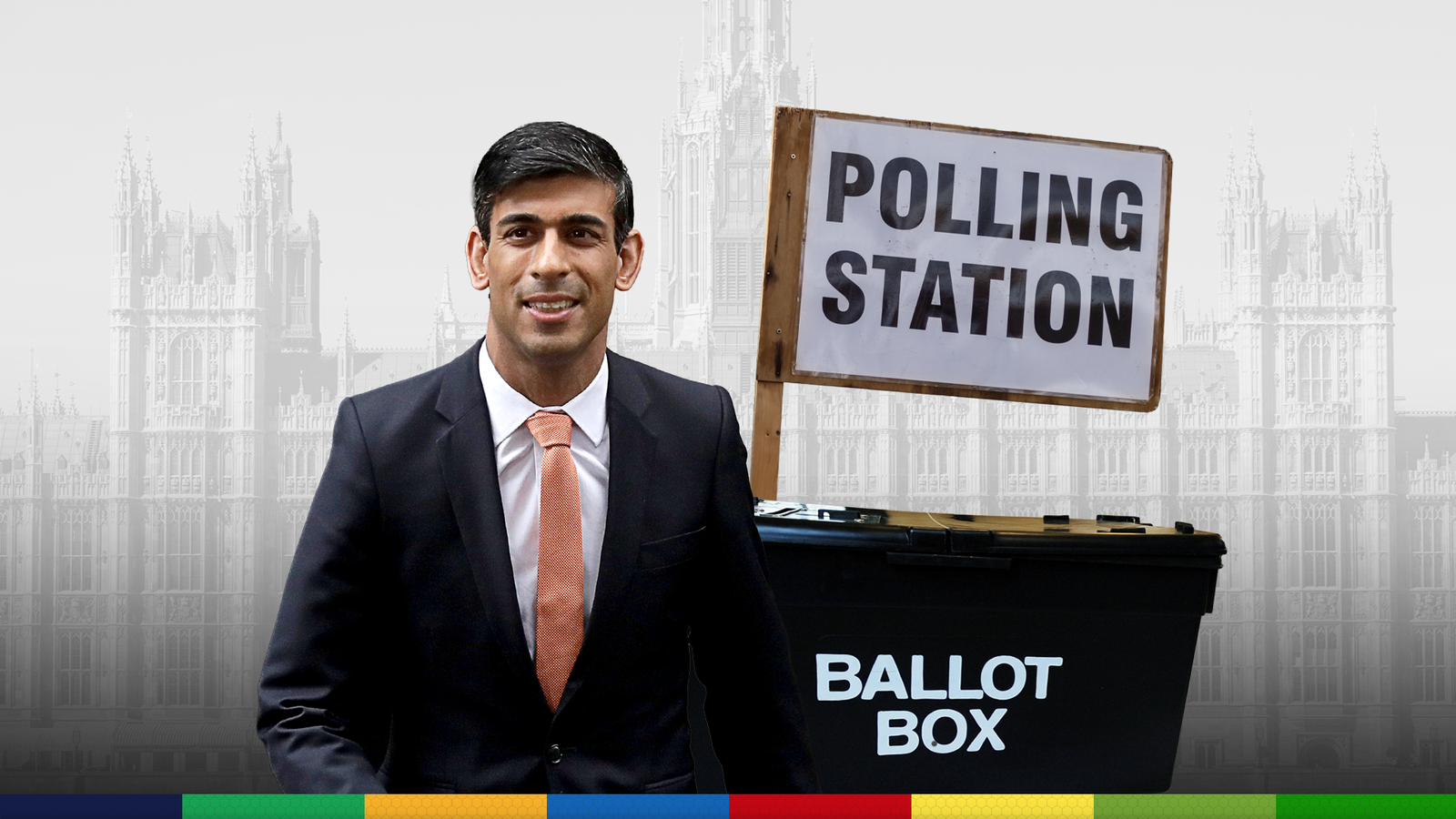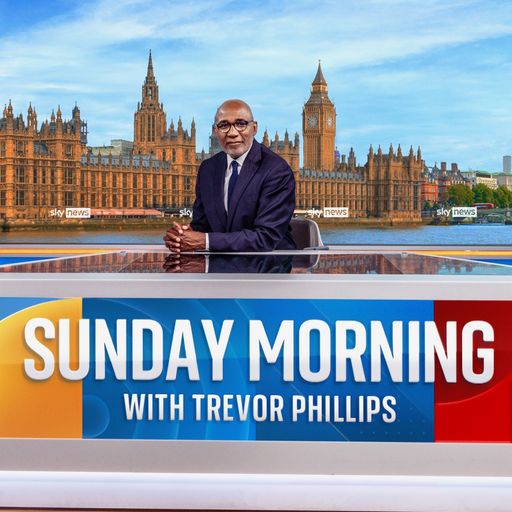Rishi Sunak’s recent shift on green policies gave us the biggest indication yet that he is planning for a general election.
Standing on a podium with the slogan “Long term decisions for a brighter future”, the prime minister made clear his watering down of net zero pledges was not a one-off, but the beginning of a series of policy measures aimed at driving a wedge with Labour – and turning around his fortunes in the polls.
UK general elections have to be held no more than five years apart, with the maximum term of a parliament five years from the day it first met.
The current parliament first met on 17 December 2019 and will automatically dissolve on 17 December 2024, with polling day expected to take place 25 days later (not counting any bank holidays or weekends).
This means the next election will take place by the end of January 2025 at the absolute latest.
But the precise date of the vote remains guesswork – and has been the subject of much speculation.
There have been reports of a spring election, and a November election, or could the prime minister even stick it out until the bitter end?
“I am absolutely clear it will and should be the autumn,” Conservative peer and pollster Lord Robert Hayward told Sky News.
“The biggest drag for the Tory party are the events of 2022, therefore what they need to do is distance themselves from that as much as possible.
“Coinciding with that, the financial assessments are that the picture will be better in autumn 2024 on a worldwide basis. If America reduces interest rates, it’s likely Europe and Britain will follow, so an autumn 2024 election is economically more attractive.”
Lord Hayward added that Mr Sunak also “needs more time” to establish his leadership style and prove he is capable of managing the country, having promised to bring stability as he staked his premiership on five key pledges relating to the economy, immigration and the NHS.
Sky’s election analyst Professor Michael Thrasher comes to a similar conclusion.
PM ‘may copy Thatcher’s wait and see strategy’
“The Conservatives trail Labour by 18 points in the latest polling, a swing sufficient to give Starmer a healthy majority at the coming election. A series of record-breaking by-election defeats this parliament confirm the Tory predicament. Clawing back the deficit, and recovering trust among electors is going to take time.”
Prof Thrasher says while the local elections in May next year could see the Conservatives lose seats and councils, the London mayoral elections could see a different dynamic, particularly among motorists, with Sunak rowing back on his green agenda.
“Sunak may copy Margaret Thatcher’s wait-and-see strategy. The May local election results in both 1983 and 1987 were favourable and she went for general elections a month later.
“But Labour’s lead over the Conservatives is so large that this option might not be available. This suggests a contest in autumn 2024, late September/early October, is favourite.
“Better economic indicators, a possible reduction in illegal Channel crossings and a global outlook that favours incumbents might be the best that the Conservatives can hope for.”
The bleak assessments are a remarkable turnaround for a party that just four years ago won a thumping 80-seat majority under Boris Johnson.
But the scandals that led to his downfall, and the economic chaos unleashed by the Liz Truss mini budget – all against the back drop of rising NHS waiting lists and a cost of living crisis – is why some strategists believe a Tory defeat at the next general election is all but inevitable.
‘No good reason to go early’
Or, as polling expert Professor Sir John Curtice put it: “Frankly, they are heading for crucifixion.”
He believes the Tories are facing electoral disaster on the scale of 1997, when after 18 years in power the party, led by Sir John Major, was defeated in a landslide by Labour’s Sir Tony Blair.
He told Sky News: “At the moment there is no good reason for them to do anything other than play it long.
“They are 17 points behind in the polls, they have made no discernible progress in the last 12 months.
“They will want more time to make economic progress and bring down NHS waiting lists.”
He said that, despite the noise from Conservatives about immigration, the economy “is the most important issue for voters”, followed by the NHS.
He added: “From a personal point, if you are prime minister and the odds are you are never going to be prime minister again, you are going to want to maximise your term.”
But while the consensus has long been that an autumn election would be the safest bet for Mr Sunak, recent reports have suggested the idea of a spring ballot is gaining traction.
Although the Tory leader has remained confident about his chances of winning the next election, some Conservative MPs have accepted they are headed for opposition – and believe an earlier vote could minimise losses.
That is the view of Lord Daniel Finkelstein, a former adviser to Sir John Major, who warned there are costs of holding onto power.
Spring election ‘could minimise Tory losses’
“When I look back on the 1997 election, I think one thing we could have done to mitigate the size of our defeat is to have gone slightly earlier,” he told Sky News.
Lord Finkelstein said while he can “understand the temptation” for Mr Sunak to wait it out in the hope of turning things around, that “serendipitous occasion” may not occur and things could even get worse.
He pointed to potentially bruising local election results in May 2024 and the fact that Channel crossings are likely to rise over the summer, while the mortgage crisis may deepen as more people face the end of their current fixed rates.
This would be damaging going into an election where opposition parties will be making the case for change, and the Tories’ best bet is to argue “the country is on the right track, and we are turning things around”.
He said: “It’s very hard for any prime minister to call an election which they are quite likely to lose. While the temptation to go on will be strong, putting it off will make things more difficult if more problems arise.
“The timing of the election will not be the predeterminer of the outcome. It will be the fact that Boris Johnson and Liz Truss let down the country and it will be very difficult to turn that around.
“I would tell him to pick the moment when the economy is strongest, be realistic and go with the idea of being in opposition rather than victory.”
Read More:
A general election isn’t far away – and Labour need to make Sir Keir Starmer look like a prime minister
Political parties eye general election after mixed results in triple by-election
Beth Rigby analysis: Can the Tories turn things around before the next election?
‘Spring election rumours keeping Labour on their toes’
Lord Finkelstein stressed a Conservative victory is not impossible.
This week’s party conference in Manchester, expected to be the last before an election, offers a final chance for Mr Sunak to capture attention and start to regain voters’ ears.
As our political editor Beth Rigby explains, his team eye a narrow path to victory on economic recovery coupled with the message “we’re back on track don’t risk Labour”, and will seek to pitch themselves as on the side of motorists to further mine the advantage gained in the Uxbridge by-election over taxing polluting diesel cars.
Labour, for their part, have insisted they aren’t complacent despite their significant lead in the polls.
They have been preparing for government for some time, and have factored in the possibility of a spring election.
“Our job is to be ready whenever it comes, and we will be,” said one Labour source.
Ultimately only the prime minister knows when he will call an election, and there is no reason for him to have decided yet.
Click to subscribe to Politics at Jack and Sam’s wherever you get your podcasts
Sir John Curtice is not convinced by the argument for a spring election, saying he believes leaks suggesting it’s a possibility are designed “to keep the Opposition on their toes.. creating uncertainty around campaign plans and policy announcements”.
“If the Labour lead is halved to eight or nine points, then there may be an argument to say ‘let’s go early, we might lose but we will keep some seats, there could even be the possibility of a hung parliament’. But the Tories are at rock bottom”, he said.
However, he agrees holding onto power for too long is also a gamble.
“There is a risk the economy will get even worse by November,” he said. “I think October is as long as they will have before having to admit the game is up.”


